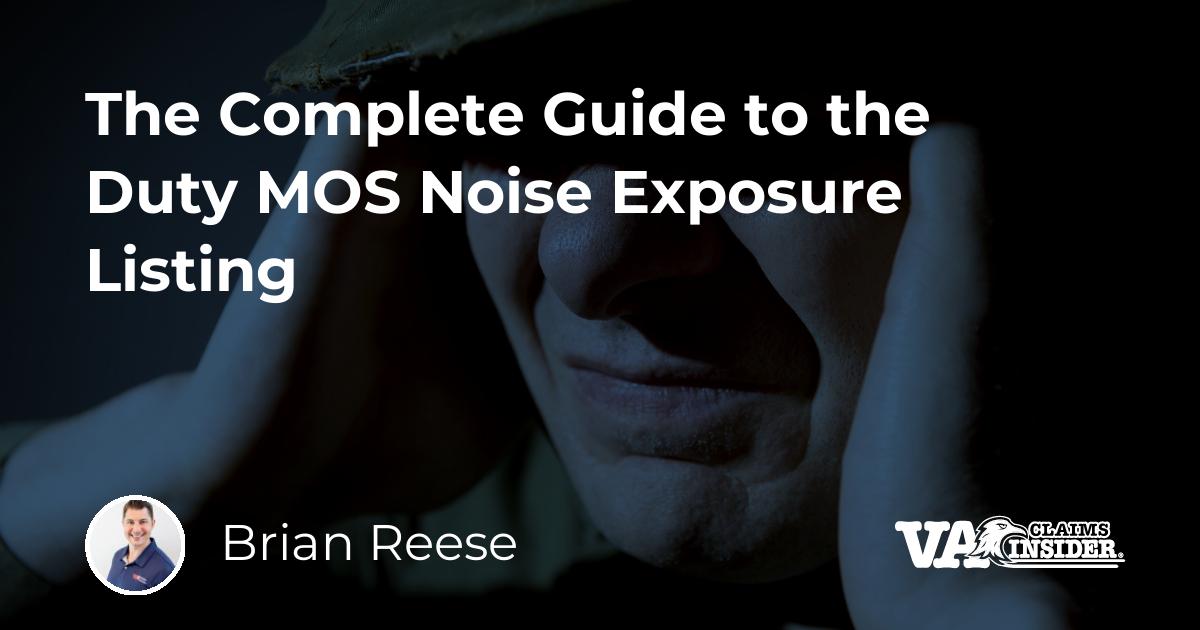Protocol
New member
Vetspouse here (shared account). Picked up a trick or two about the VA maze before my husband hung up his uniform.
Turns out, his hearing loss got denied as non-service-connected, and the slight tinnitus got a flat-out no too. Peeking through his files, I figured these would be no-brainers to get both recognized and rated, at a 0% for hearing and a 10% for tinnitus judging by what I've seen others get. His enlistment health check, the DD Form 2807 "Report of Medical History," showed his ears were all clear for service, and the DD Form 2808 "Report of Medical Examination" shows sharper hearing than what his final health exam reports.
He's of the mind to let it be, saying the slim gain even if they grant it, would still put him at a total of 70% like he is now. Me? I'm all for pushing back. Every percent counts when you tally the small disability rating percentages up, and in this particular case, the evidence stacks up nicely here for hearing loss and tinnitus. His ears were tip-top at the start, not so much at the finish.
Seems to me a doc could easily link the hearing loss to his service with just these records to go on, and if tinnitus gets diagnosed and connected to his hearing loss, that's a straight shot to a 10% secondary (or primary?).
Now, 10% might seem small. But we've left out a few disabilities to claim because his medical record seemed to be split at the time of filing.
I reckon the appeal window's closed, yet I see a solid shot at tying the hearing issues to service, getting the tinnitus acknowledged, and maybe even getting a few other small claims in like his wonky ankle that never healed right. Then there are the increases (one going from 0% to 20% off the top of my head) that we could go for based on previous rating decisions and what we know now too.
Is it too pie in the sky to think we can line these up as service-connected so smoothly? And, do you think we're still too far from 100%? Please, help us see what we're not able to see!
TIA
Turns out, his hearing loss got denied as non-service-connected, and the slight tinnitus got a flat-out no too. Peeking through his files, I figured these would be no-brainers to get both recognized and rated, at a 0% for hearing and a 10% for tinnitus judging by what I've seen others get. His enlistment health check, the DD Form 2807 "Report of Medical History," showed his ears were all clear for service, and the DD Form 2808 "Report of Medical Examination" shows sharper hearing than what his final health exam reports.
He's of the mind to let it be, saying the slim gain even if they grant it, would still put him at a total of 70% like he is now. Me? I'm all for pushing back. Every percent counts when you tally the small disability rating percentages up, and in this particular case, the evidence stacks up nicely here for hearing loss and tinnitus. His ears were tip-top at the start, not so much at the finish.
Seems to me a doc could easily link the hearing loss to his service with just these records to go on, and if tinnitus gets diagnosed and connected to his hearing loss, that's a straight shot to a 10% secondary (or primary?).
Now, 10% might seem small. But we've left out a few disabilities to claim because his medical record seemed to be split at the time of filing.
I reckon the appeal window's closed, yet I see a solid shot at tying the hearing issues to service, getting the tinnitus acknowledged, and maybe even getting a few other small claims in like his wonky ankle that never healed right. Then there are the increases (one going from 0% to 20% off the top of my head) that we could go for based on previous rating decisions and what we know now too.
Is it too pie in the sky to think we can line these up as service-connected so smoothly? And, do you think we're still too far from 100%? Please, help us see what we're not able to see!
TIA

